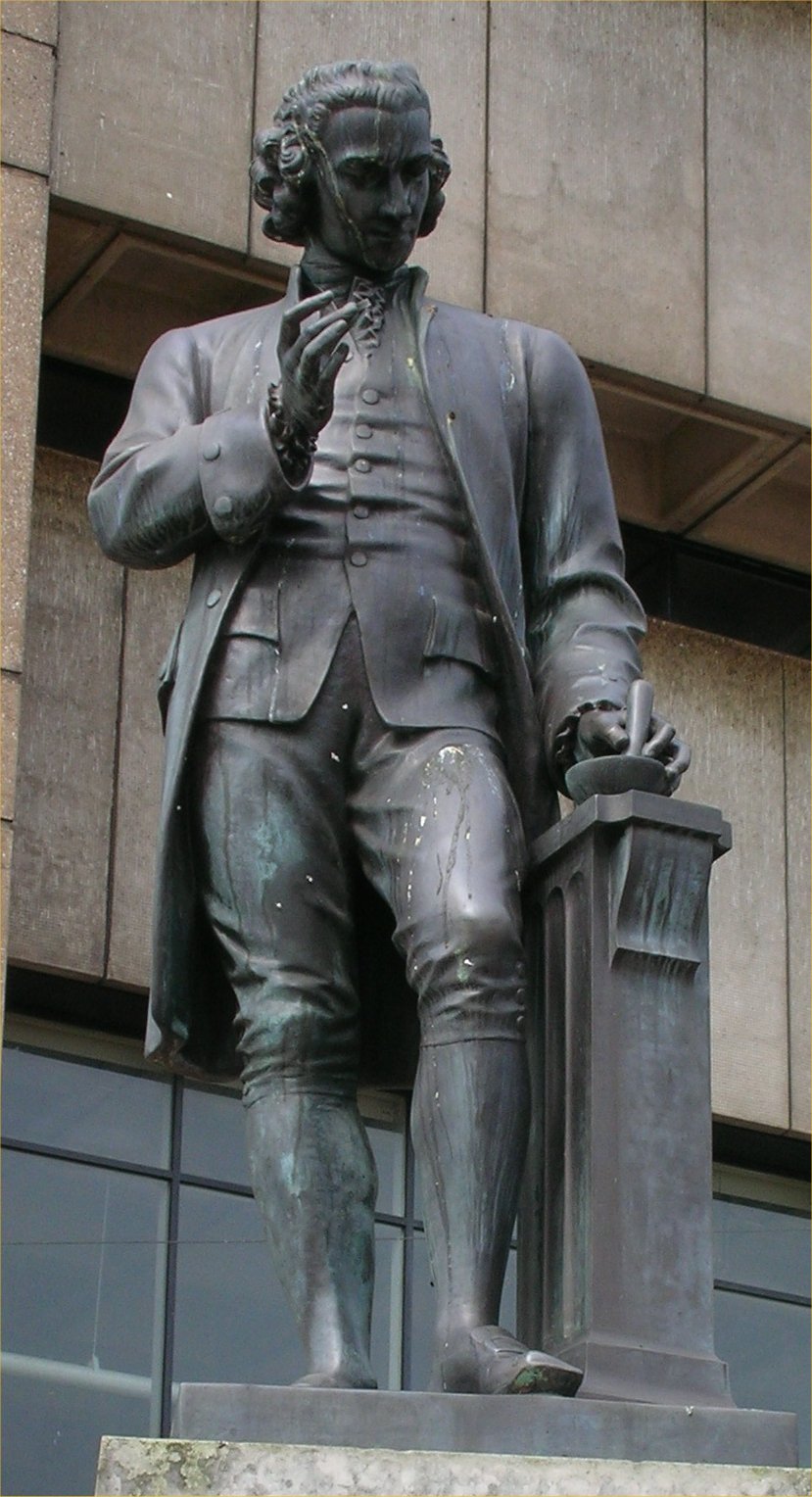This has just appeared in The Scientist: Effector Detector, which is a kind of follow up on a paper that I my team and my collaborators published a couple of years ago in PNAS.
I had a little advance warning that this commentary was going to appear, but didn't get the chance to see it or comment on it in advance. The coverage seems rather superficial, and it neglects the important role that our Japanese collaborator Toru Tobe (from the University of Osaka) played in the work, which was just as important as mine (if not more so). But it is nice to be noticed!

Another nice thing about our original PNAS paper, aside from the science, was the international character of the team, which included scientists born in the UK, New Zealand, Israel, Iraq, France and Japan drawn from Christian, Jewish, Muslim and Shinto or Buddhist backgrounds. As local Birmingham scientist Joseph Priestley (discoverer of oxygen and religious and political radical; statue in Birmingham shown left) said in 1793 of the Lunar Society of Birmingham:
*Priestley used the old-fashioned term "Mohammetans", but I have translated his sentence into modern English.
"We were united by a common love of Science, which we thought sufficient to bring together persons of all distinctions, Christians, Jews, Muslims* and Heathens, Monarchists and Republicans."
*Priestley used the old-fashioned term "Mohammetans", but I have translated his sentence into modern English.
No comments:
Post a Comment